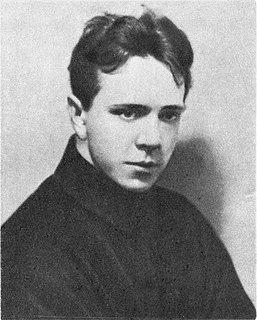A Quote by Gore Vidal
Fortunately, our audiences are used to a kind of boredom in the theatre, and if the writer is skillful, he will flatter them into thinking: 'Why, that's us up there, and aren't we - for all our little foibles - pretty nice guys and gals?'
Related Quotes
There are so many things that can provide us with peace. Next time you take a shower or a bath, I suggest you hold your big toes in mindfulness. We pay attention to everything except our toes. When we hold our toes in mindfulness and smile at them, we will find that our bodies have been very kind to us. We know that any cell in our toes can turn cancerous, but our toes have been behaving very well, avoiding that kind of problem. Yet, we have not been nice to them at all. These kinds of practices can bring us happiness.
We don't exist unless there is someone who can see us existing, what we say has no meaning until someone can understand, while to be surrounded by friends is constantly to have our identity confirmed; their knowledge and care for us have the power to pull us from our numbness. In small comments, many of them teasing, they reveal they know our foibles and except them and so, in turn, accept that we have a place in the world.
So do we pass the ghosts that haunt us later in our lives; they sit undramatically by the roadside like poor beggars, and we see them only from the corners of our eyes, if we see them at all. The idea that they have been waiting there for us rarely crosses our minds. Yet they do wait, and when we have passed, they gather up their bundles of memory and fall in behind, treading in our footsteps and catching up, little by little.
Most of us fill up our lives and end our boredom with our involvement with other people - people we love, people we hate, people we're afraid of, people we're interested in - and that's what keeps our minds going. So if you're sociopathic and you really have no caring for anybody, there's not much left, only boredom, and the way to relieve that, apparently, is to play a game and make sure that you win.
We will have gone from men telling us condescendingly to not bother our pretty little heads about important things like politics, to not bothering our pretty little heads without even being told not to! The suffragettes struggled and suffered so much on our behalf; what a travesty of everything they stood for, if we simply look away as though we can't be bothered.
There are two kinds of humor. One kind that makes us chuckle about our foibles and our shared humanity -- like what Garrison Keillor does. The other kind holds people up to public contempt and ridicule -- that's what I do. Satire is traditionally the weapon of the powerless against the powerful. I only aim at the powerful. When satire is aimed at the powerless, it is not only cruel -- it's vulgar.
What is it that we in the theatre give? Instead of images on canvas or in the form of statuary or music, we give our body, voice, feelings, will, imagination — we give a form of pulsating art to life itself; we give it to our characters and we give it to our audiences. Nothing, absolutely nothing remains for us save the pleasure of having given pleasure.
It's very fashionable to talk about human trafficking, in this fantastic A-C hall. It's very nice for discussion, discourse, making films and everything. But it is not nice to bring them to our homes. It's not nice to give them employment in our factories, our companies. It's not nice for our children to study with their children. There it ends. That's my biggest challenge.
Any story that gets us thinking, and particularly young people, thinking why? Whether it's as a result of reading the book, or coming out of the theatre or the cinema, I think we should just simply be asking the question 'why'? Why did it happen to those people? Was it necessary? And anything that gets us thinking like that is really important.
I go back to things all the time. It's really nice, too, like when I'm going through some kind of a writer's block, and I'm feeling uninspired, I go to some of my oldest songs from over the years and sift through them, and one thing that's very nice is to see how I've grown up a little bit. A little bit.
Why are we reading if not in hope that the writer will magnify and dramatize our days, will illuminate and inspire us with wisdom, courage, and the possibility of meaningfulness, and will press upon our minds the deepest mysteries, so that we may feel again their majesty and power? What do we ever know that is higher than that power which, from time to time, seizes our lives, and reveals us startlingly to ourselves as creatures set down here bewildered?






































